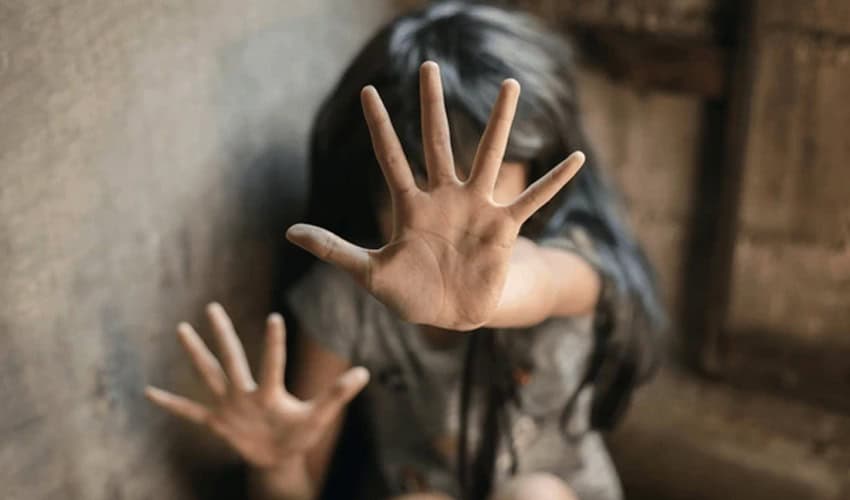In our society, the prevalence of paedophilia is rising exponenially. It is really revoling and a terrible embarrassment to our culture as a whole. Our society’s startling increase in child sex abuse is a reflection of how vulnerable our kids are.
Paedophiles readily prey on our loved ones and get away with it.
Such creatures must be completely eradicated from our culture. I worry that if they keep becoming bigger, they will keep putting our defenseless children’s lives and honor in danger. In order to create a society that is a safe sanctuary for our children, all parties involved— parents included—should unite in the fight against these wild beasts that pose as human beings.
To this purpose, we should first recognize the seriousness of the problem before coming up with a plan to deal with this emerging social ill. This is my meager attempt to identify the issue and take the appropriate action in light of it.
A kid being involved in sexual behavior that they do not completely understand, cannot provide informed consent to, are not developmentally ready to give consent to, or that breaches legal or social taboos is considered paedophilia, according to the World Health Organization.
The idea that paedophiles are primarily strangers to children is one of the fallacies surrounding the phenomenon. This is a completely incorrect belief, as evidenced by studies done by a few well-known NGOS who focus on child sex abuse: 47% of respondents are relatives, 43% are acquaintances, and only 7% are strangers. As such, it is inappropriate to warn children about strangers alone. In their interactions with those they know well, they ought to exercise the same caution. Abusers can be anyone who comes into contact with a child in his or her social domain, including siblings, stepparents, grandparents, teachers, neighbors, servants, relatives, uncles, aunts, and Molvi’s in particular. Parents are therefore expected to keep a close watch on everyone who is in close proximity to their children.
No one should be trusted in this situation by the parents. In the end, it comes down to our kids’ security and safety.
Furthermore, it is untrue that boys are not as susceptible to child sex abuse as girls are. For the protection of both sexes, uniform preventive measures are therefore necessary.
Furthermore, there is a false belief that paedophiles prey mostly on youngsters from socioeconomically poor backgrounds. Sexual abuse is not limited by socioeconomic status. Since they are surrounded by servants even when their parents are not there, children from privileged backgrounds are generally more vulnerable than those from less privileged backgrounds. Numerous examples demonstrate how wealthy families’ own servants, such as drivers, chefs, security guards, and maids, have abused children.
Now, the question is how to stop this widespread social evil; what social and legal solutions are there to stop this social ill in its tracks? A multipronged approach is needed to implement this. The socio-legal framework that would help our society eradicate this growing threat is mentioned below.
In terms of social interactions, we should work to close the communication gap between parents and children as much as possible to give our kids the confidence to confide in us about their problems. We ought to request that our children provide us with regular updates on their daily activities, friend list, activities, hobbies, and other details. To give our kids the impression that we are with them, we should carve out time from our busy schedules for them. Additionally, parents ought to give their kids our undivided care, attention, and guidance. As time went on, the lack of trust between parents and children would disappear, allowing the kids to feel safe and secure enough to confide in them again without worrying about being ridiculed.
In addition, children ought to receive sex education that makes them aware of the importance of bees and birds, even if not in great detail. This should enable them to recognize an appropriate touch and vice versa. It is the responsibility of both the parents at home and the instructors at school to do this. Regarding the legal front, we discover
that numerous laws have been created to address the problem of child sex abuse, but they are not being enforced. The bulk of child sexual abuse cases are reported in accordance with the Zina Ordinance of 1979, which forbids all forms of illicit sexual activity, including rape. In addition, some aspects of child sex abuse are covered by the Punjab Children Ordinance of 1983 and the Sindh Children Act of 1955.
It is interesting to note that a few years ago, 20 people were apprehended by the authorities in connection with the largest-ever criminal scheme following the exposure of the child pornography racket. At that time, only sodomy and rape were crimes; child pornography was not one of them. Thus, in order to fortify our framework for child safety even more, a number of additional laws were added to our legislature. Sexual assault against minors, child pornography, and child trafficking were made illegal by the first amendment to the Pakistan penal law regarding child sex abuse in 2016. While child pornography was not previously criminalized, it is now punishable by up to seven years in jail for sexual assault (before only rape was considered a crime).
It was previously said that there is now enough legislation in place to stop the despicable spread of child sex abuse; the pressing task is to put these laws into effect, both in their entirety and in letter. Any case involving child sex violence, like the one involving Zainab, ought to be heard in an anti-terrorism court and handled with the same diligence and zeal as terrorism-related cases. Every citizen’s DNA profile should also be added to the NADRA database, as this will make it easier to identify the offenders—just as it did in Zainab’s case.
At last, this is the subject that the government must prioritize above all others. Since there is nothing that could stop potential rapists from getting involved in further acts of sexual violence against minors, the seriousness of the problem cannot be overstated.
Child rape cases are mounting. Should the government be powerless to stem the rising tide of juvenile rape in the nation, it can at least make a request for assistance to the regional and global community.
If Pakistan’s administration showed some interest, the world would be happy to assist the country in this way. No significant progress on this issue could be made otherwise.














